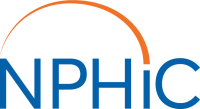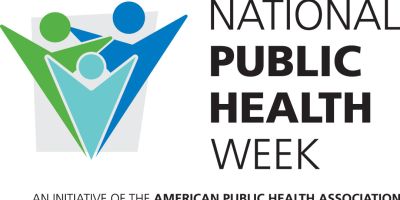Sharing Knowledge
Expertise
Resources
Making Public Health Public
Premier Network of
Public Health Communicators
Increasing the Dissemination of
Accurate Information
2025
National Conference on Health Communication Marketing and Media
Short Reel: "Voices, Vision, and Vibes – A Recap”
Thanks to all who attended and made the week so special!
2025
National Conference on Health Communication Marketing and Media
Short Reel: "Voices, Vision, and Vibes – A Recap”
Thanks to all who attended and made the week so special!
LATEST NEWS HIGHLIGHTS

What’s Ahead for NPHIC in 2026
As we move further into 2026, NPHIC wants to thank our members for your continued leadership and dedication to public health communication. In a rapidly evolving information landscape, we remain deeply committed to supporting your work through practical tools, professional development, and opportunities for connection.
This year, we are exploring a potential strategic partnership with the Public Health Communications Collaborative (PHCC) aimed at strengthening capacity and expanding timely, actionable resources for communicators. To ensure transparency as we plan ahead, we have paused 2026 membership renewal invoices. We also look forward to engaging with you through upcoming opportunities, including a Member Needs Survey that will help guide our priorities and programming. Learn more in our FAQ section on our website here.

NCHCMM Conference Update for Public Health Communicators
As a proud co-host of the National Conference on Health Communication, Marketing, and Media (NCHCMM), NPHIC would like to share a brief conference update with our community. In keeping with the conference’s every-other-year cadence, the next full, in-person NCHCMM will be held in July 2027. There will not be a full, in-person conference in 2026.
Throughout 2026, we’ll be exploring additional ways to engage, connect, and support public health communication professionals. We look forward to sharing updates as plans develop. In the meantime, colleagues may wish to follow the Public Health Communications Collaborative (PHCC), which is planning a virtual conference this spring (dates forthcoming). Event details will be shared directly by PHCC.
To stay informed about NCHCMM news and future announcements, we encourage you to join the mailing list and visit the conference website here.

New Voices from the Field Podcast - Syphilis During Pregnancy: The Role of Public Health Communication in Prevention
Recorded live at the 2025 National Conference on Health Communication, Marketing, and Media (NCHCMM) in Atlanta, this new episode of Public Health Speaks features Michael McNair of the New York State Department of Health’s Office of Sexual Health and Epidemiology. McNair discusses his campaign, Syphilis During Pregnancy: The Role of Public Health Communication in Prevention, developed in response to rising congenital syphilis rates in New York and across the U.S.
He explains how the initiative reframed messaging from “congenital syphilis” to “syphilis during pregnancy,” a plain-language shift designed to keep babies at the center of the conversation while empowering pregnant people to seek testing at key points: the first prenatal visit, the third trimester, and delivery. The campaign combined community listening sessions, provider education, and creative outreach strategies to build trust and engagement.
McNair also shares practical communication insights for public health professionals, emphasizing the importance of community input, inclusive language, message testing, and clear, attainable calls to action that help people take charge of their health. Learn more about the campaign at here.
FEATURED TOPICS
OpenAI Launches ChatGPT Health in a Push to Become a Hub for Personal Health Data
Written on

OpenAI has launched ChatGPT Health, a dedicated platform allowing users to securely connect medical records and wellness apps to personalize health conversations. Designed to enhance patient engagement and decision-making, the tool flags potential medication risks by integrating user data without training its AI on personal medical information.
Early examples highlight its potential to help patients navigate complex care systems. While initially available to a limited group, OpenAI plans broader rollout on web and iOS. ChatGPT Health incorporates layered protections, multi-factor authentication, and record management features, signaling a growing intersection of AI and public health communication. Read more from Fortune here.
A State of Crisis’: record number of Americans are pessimistic about US healthcare system
Written on

A record share of Americans view the U.S. healthcare system as deeply troubled, with 23% describing it as “in a state of crisis” and nearly half citing major problems, according to new West Health–Gallup polling. Rising healthcare costs emerged as the most urgent concern, closely tied to worsening access and affordability.
Experts note that unpredictable expenses, an aging population, and inflation are driving financial strain that leads many to delay or skip care. Mental health access remains a particular challenge, with cost barriers creating a feedback loop between poor mental health and unmet care. State-level disparities further underscore uneven access nationwide. Read more from The Guardian here.
3 Issues to Watch in Public Health in 2026
Written on

Public health communicators are heading into 2026 amid mounting uncertainty and high-stakes challenges. Confidence in long-standing public health institutions is being tested as leadership changes, staffing losses, and political influence reshape how guidance and data are produced and received. At the same time, shifts in U.S. vaccine policy risk fueling skepticism at home and abroad, with potential consequences for routine immunization and measles control globally.
Compounding these concerns, investments in pandemic preparedness and international disease surveillance are shrinking just as the world moves further from — and closer to — the next pandemic. Together, these trends raise urgent questions about trust, prevention, and readiness in the year ahead. Read the full article from STAT News here.
Americans’ Social Media Use 2025
Written on

New Pew Research Center data show that social media use remains widespread in the U.S., with important implications for public health communication. YouTube (84%) and Facebook (71%) continue to reach the largest shares of adults, while Instagram now reaches half of the population. Use of TikTok, WhatsApp, and Reddit has grown steadily in recent years, particularly among adults under 30.
Daily use is highest on YouTube and Facebook, though younger adults are far more likely to use TikTok daily. The findings underscore the need for public health communicators to tailor messages by platform, age, and audience demographics to maximize reach and impact. Read the study from Pew here.
Latest Blog Posts
Podcast
"Public Health Speaks"
A bi-monthly podcast series about public health issues to educate, inform and assist our members, partners and affiliate organizations in understanding and overcoming urgent communication challenges
From Our Partners
CDC Online Newsroom
- Secretary Kennedy Appoints Two Physicians to CDC's Advisory Committee on Immunization Practices
- Statement on the Resignation of the CDC Principal Deputy Director
- Extensively drug-resistant Salmonella outbreak linked to moringa powder capsules
- CDC's National Firefighter Registry for Cancer is Now the Largest in the Nation
- CDC Surpasses 1 Million Voluntary Air Travel Participants in Biosurveillance Program
- New recall in Salmonella outbreak linked to dietary supplements containing moringa leaf powder
- United States Completes WHO Withdrawal
- Live It Up Super Greens supplement powders linked to new Salmonella outbreak
CDC Latest COVID-19 Science Update
CDC FluView Weekly Summary
CDC Morbidity and Mortality Weekly Report
- Multicounty Outbreak of Salmonella Agbeni Linked to Ice in a Cooler at a County Fair - Illinois, August 2024
- Respiratory Virus Activity - United States, July 1, 2024-June 30, 2025
- COVID-19 Antiviral Prescription Receipt Among Outpatients Aged ≥65 Years - United States, June 1, 2023-September 30, 2025
- Regional Increases in Incidence of Coccidioidomycosis (Valley Fever) - Arizona, 2005-2022
- Pseudo-Outbreak of Purpureocillium lilacinum Skin Infections at a Dermatology Clinic - Washington, 2024
GET INVOLVED! NPHIC SOCIAL MEDIA
NPHIC YouTube Channel
- Cómo prevenir la infección por Cronobacter en bebés
- Prevención de la infección por Cronobacter en bebés (Vlog)
- Preventing Cronobacter Infection in Infants (Vlog)
- How to Prevent Cronobacter Infection in Infants
- Applied Atlas: Maps to Inform Hypertension Management in Your Community
- Overview of the Atlas of Heart Disease and Stroke
- Using the Atlas of Heart Disease and Stroke to Address Stroke Burden and Proximity to Stroke Centers
- Using the Atlas to Address Cardiac Rehabilitation in Your Community



















